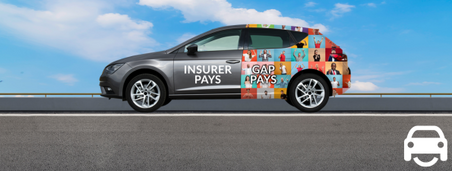How to Finance Your New Car

Car finance, there are a multitude of different finance offers out there if you're looking for a new car, here’s some help to steer you through the minefield. We also reveal some areas to look out for before you commit to an apparently unbelievable deal which then turns out to be far less attractive than you first thought.
For all of the below options make sure you have taken a look at MotorEasy's protection products to ensure you keep that new car shiny.
GAP Insurance - Alloy Insurance - Tyre Insurance - Cosmetic Repair Insurance
What Car Finance Is Best For You?
Is A Personal Loan (PL) A Good Option For Me?
Arrange a Personal Loan with your Bank, Building Society or a Finance Company. Borrow the amount you want to pay for the car or make any shortfall up with your savings or your car’s trade in value.
Car Scrappage Schemes - Are They Worth It?
Personal Loan Finance Good Bits:
- The deposit required will be smaller than for other finance types – maybe nothing at all.
- You will be the owner of the car while you’re paying the loan off. This means you can sell it if you need to, but you will probably have to make the funder aware.
- There won’t be any annual mileage restrictions.
- You don’t have to hand the car back at the end of the loan.
- There won’t be any reconditioning costs at the end of the loan because you’re not returning the car.
- If you come into some money and want to settle the loan or increase your monthly payments, either should be possible.
What To Be Aware Of With A Personal Loan:
- As with all financial agreements, make sure you can afford the payments you commit to.
- If the car is written-off or you sell it, the lender will want you to repay the loan in full. GAP insurance will help you cover the former.
- Because you’re paying-off the full value of the car, payments are likely to be higher than alternative forms of funding.
Could I Get A New Car On Hire Purchase (HP)?
Usually there’s an initial deposit to be paid for and then you will pay-off the full value of the car in monthly instalments. The agreement ends when you have completed all your payments and you will own the car to do with as you wish.
Hire Purchase Finance Good Bits:
- You don't need to estimate annual mileage before the HP agreement starts so there won’t be any excess mileage charges when the agreement ends.
- You can afford a car that’s beyond your available cash.
- There won’t be any reconditioning costs.
- When your monthly payments have ended, and you’ve paid the option to purchase fee, the car will be yours to keep and you’ll have full ownership.
Hire Purchase Things To Be Aware Of:
- You won’t own the car until you have made all of the repayments.
- You will have to settle the outstanding finance if you want to sell the car earlier than planned and there may be penalties for doing so.
- You must ensure the car is fully insured, properly maintained and in your possession until the full value is paid off. GAP insurance should be considered as it will help if your car is written-off or stolen before the agreement has finished.
- Your monthly payments will be higher than with alternatives, like Personal Contract Purchase (PCP), because you're paying off the full value of the car.
How Does A Car Finance PCP Work?
Personal Contract Purchase (PCP) is like Hire Purchase as there is normally an initial deposit, followed by monthly payments.
The difference is that your monthly payments are actually paying for the depreciation in value that your car will suffer during the contract period and not the whole value. When you get to the end of the contract, there is a final balloon payment that must be paid if you want to keep the car.
A Guaranteed Future Value (GFV) is agreed before the contract starts. This is the car's expected value when your contract ends.
So, what you will be repaying is the difference between what the car is worth now and what it will be worth at the end of your contract (the depreciation) plus the interest cost, which is calculated on the full value of the vehicle.
You will need to pay a final payment (GFV) at the end of the contract if you want to keep the car.
Once the contract is paid-off, you’ll have three options:
1. Give the car back - the finance company has already predicted the GFV of the car, so handing the car back will settle the deal
2. Buy and keep the car by paying the final balloon payment (GFV)
3. Part exchange it for a new car.
Personal Contract Purchase Finance Good Bits:
- Monthly payments for PCP should be lower than HP.
- If you decide not to buy the car at the end of the contract, it is no longer your responsibility unless you choose to keep it.
- If your car is worth more than the Guaranteed Future Value, then you will have built up some equity towards your next deposit.
- You can change your car for a new one every few years without worrying about who will buy it.
PCP Points To Be Aware Of:
- If you want to buy the car you will need to pay your final balloon payment (the Guaranteed Future Value).
- If the GFV was set too high, then you will have benefitted from lower monthly payments, but the car will probably not be worth keeping. If it was set too low, then your monthly payments will have been higher but the GFV will be more affordable.
- When you first calculate the monthly payment you can afford, think about having a less expensive loan deal and putting some money in a savings account until the end of the contract. You will then have some equity for a deposit on a replacement car, whatever the position at the time.
- You agree a forecast mileage allowance at the beginning of your contract. Excess mileage charges will apply if you exceed it. Check and compare the rate you will pay.
- You’ll need to keep the car fully insured, correctly maintained and in your possession until the full value is paid off. Consider GAP insurance and a maintenance package.
- If you decide to return the car there will probably be reconditioning charges to rectify minor damage. MotorEasy Alloy, Tyre and Cosmetic Repair Insurance can help with this.
- You won’t own the car until you have made all your repayments, so you won’t be able to sell it.
- If your circumstances change and you want to settle early, you’ll have to pay the difference between the car’s current value and the payments outstanding and there will probably be an early settlement charge.
Am I Eligible For A Personal Leasing/Contract Hire (PCH)?
This is really long-term car rental paid monthly. You lease the car for an agreed period and you can include a monthly maintenance plan that will cover your routine servicing, tyres etc. When the contract ends, you just return your car to the leasing company.
Personal Leasing/Contract Hire Finance Good Bits:
- The leasing company is responsible for the road tax.
- Drive a new car without thinking about how you’ll sell it on at the end of the lease.
- If you don’t take out the maintenance cover, you will have to pay for routine servicing and any repairs. You might find you’re responsible for the MOT before the end of the contract.
- Monthly payments will be lower than if you were buying it because the leasing company will retain ownership when the contract ends.
- Tempting new cars may be within your budget that you could only dream of owning outright.
And The Not So Good Bits Of Personal Leasing/Contract Hire:
- You will select a contract mileage at the start of the lease. If you exceed it mileage penalties can be severe. Attractive offers with low monthly payments can have mileages set as low as 5,000 miles per year.
- Another way monthly rentals can look attractive is by raising the initial advance payment. The difference between three months and nine months in advance can be significant, especially if you select a two year contract period.
- Check if the monthly rate includes VAT or not.
- Like any monthly contract, it is difficult to change or get out of without paying a penalty charge.
- You’ll need to keep the car fully insured, correctly maintained and in your possession until you return it. Consider GAP insurance to cover the possibility of it being stolen or written-off.
- You will never own the car and there’s no option to buy it at the end of the period.
- You will not have any equity in the car and you will need to find another deposit for a new one.
Car Finance Summary:
In the mid-eighties car manufacturers started to introduce car financing products, like Ford Options. While these plans had huge popularity in the US, they were met with some resistance as UK motorists were more attached to ownership and apparently reluctant to consider alternatives like leasing. Today nearly ninety percent of all new cars are acquired on finance in one form or another, although Personal Leasing/Contract Hire remains a relatively recent alternative.
As manufacturers fight for market share, the PCP and PCH rates on offer look more and more attractive. This is causing some concern in government circles as they result in a significant increase in personal debt and there is genuine fear of a market collapse.
If you do decide to lease or get a PCP deal, then you should seriously consider GAP insurance to protect you from serious exposure should your car get written-off or stolen and not recovered.
Alternatively, as belts start to tighten in a stalling economy, you might think of keeping your current car for longer. If you do, then an extended warranty can protect you from unexpected repair bills after the manufacturer’s warranty has expired.






